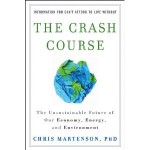EDIT of 5 Dec 2010 to add commentaries by various others.

Op-Ed Columnist
By DAVID BROOKS
Published: November 29, 2010
Julian Assange, the founder of WikiLeaks, had moved 37 times by the time he reached his 14th birthday. His mother didn’t enroll him in the local schools because, as Raffi Khatchadourian wrote in a New Yorker profile, she feared “that formal education would inculcate an unhealthy respect for authority.”
. . . . . . .
She needn’t have worried. As a young computer hacker, he formed a group called International Subversives. As an adult, he wrote “Conspiracy as Governance,” a pseudo-intellectual online diatribe. He talks of vast “patronage networks” that constrain the human spirit.
Far from respecting authority, Assange seems to be an old-fashioned anarchist who believes that all ruling institutions are corrupt and public pronouncements are lies.
Read the rest of this revealing assessment….
Phi Beta Iota: We like David Brooks. He's less submissive than David Ignatius, less pretentious than Fareed Zakaria, and generally has something interesting to say. In this piece, most revealingly, he displays his limitations to the fullest. We are quite certain that David Brooks means well, but the depth of his naivete in this piece is nothing short of astonishing. The below lists of lists of book reviews will suffice to demonstrate that David Brooks is not as well-read as he needs to be, not as intellectual as he pretends to be, and not at all accurate in his assessment of Julian Assange. We share with Steven Aftergood of Federation of American Scientists (FAS) concerns about Assange's judgment in releasing some materials that are gratuitous invasions of rightful privacy, but we also believe that Assange is finding his groove, and the recent cover story in Forbes captures that essence. WikiLeaks is an antidote to corporate fascism and elective Empire run amok. It meets a need.
Other Commentaries on the Same Article:
Continue reading “Journal: Brooks on Assange, Others on Brooks”









